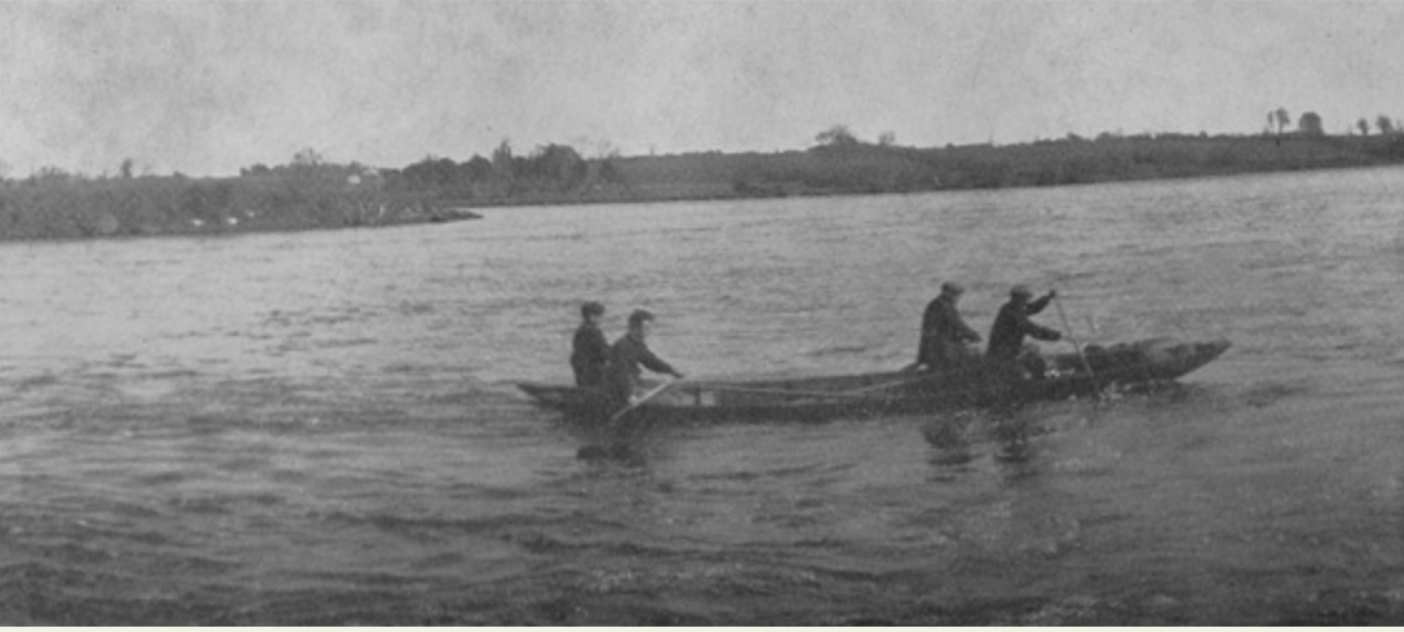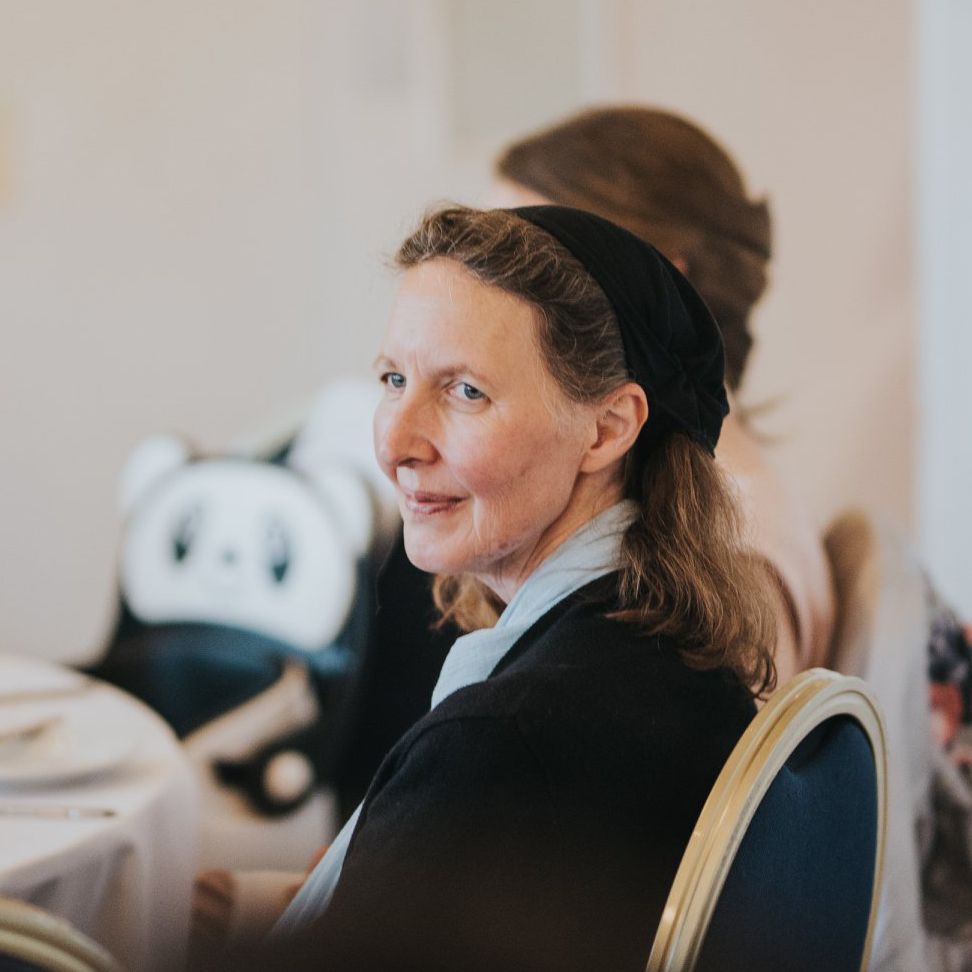16th July - No Letter
Secret diary: Fri Fishing etc
Official diary (16th July): No entry
Location: Waterpark House, Hartigan’s near Castleconnell
Risky business
It's of little surprise that CHTL did not record in his official report his clandestine trips after dark to do a spot of fishing. The fact that it was in the act of fishing that he was caught (and which landed him into this mess in the first place) meant that if his superiors had known that he actually continued to indulge in this sport whilst they were throwing massive resources at trying to recover him, they would not have taken very kindly to it! Churchill would have been a little more than just ‘purple’ with rage.
IRA Volunteer Thomas Moynihan recalled the fishing expeditions in his Witness Statement:
Around this time, General Lucas, who had been captured some time earlier in Co. Cork, was transferred to our battalion area from, I think, Commandant Michael Brennan's brigade area in Co. Clare. We had him a prisoner for about three weeks or so, in a very lonely place on the banks of the River Shannon, in the house of a man named Jack Hartigan. I acted as a member of his guard many times. He was very fond of fishing, so we took him out every day and night. He had a very nice time with us.
BUREAU OF MILITARY HISTORY, 1913-21. STATEMENT BY WITNESS. DOCUMENT NO. W.S. 1452. Witness Thomas Moynihan, 24, Clarke Avenue, Janesboro’, Limerick. Identity. Volunteer.Subject. Activities of Ahane Company, 3rd Battalion, Mid Limerick Brigade, 1917-1921, and of Flying Column, 1920-1921.
Moynihan's recollection of holding the general for three weeks is exaggerated. It is known that CHTL moved houses frequently; staying no longer than two or three days in any one home for the first couple of weeks of his incarceration. Considering that he was held for a month and passed around various IRA units, it would be highly unlikely that Thomas Moynihan was with him for three weeks. However it was a great story to tell and a little embellishment here and there adds to the colourful tale, creating it's place in Irish folklore.
Michael Brennan, who was later to become Lieutenant-General of the Irish Defence Forces and Chief of Staff 1931-1940 organised the fishing:
Hartigan’s house was on the bank of the Shannon and the local men offered to take Lucas "stroke-hauling"* for salmon some night if he wished. This was apparently poaching and his strait-laced English mentality was at first horrified at the suggestion. He raised it with me again, however, and he seemed keenly interested but uneasy at the possibility of being caught poaching. I gave him positive assurances against this and eventually he decided to risk it.
Late at night we got into a boat and Seán Carroll of Castleconnell and some of his men pulled us out into the middle of the rapids. Both banks of the river were of course strongly guarded. The boat was held in the strong current for about two hours while Lucas cast for salmon, but without result.
Every now and then he expressed anxiety as to the possibility of the river bailiffs discovering us, but Carroll reassured him. When we got back Lucas said [he] could understand our feeling of security from police interference as he presumed we had taken the necessary precautions, but he would like to know why "Seán"(the only name he had for Carroll) was so certain that we were safe from interference from the bailiffs. I didn't know, but I promised to find out the next day. I got the information and passed it on to Lucas. "Seán" was the Head Bailiff. This seemed to be about the most astonishing bit of information Lucas had ever got.
BUREAU OF MILITARY HISTORY, 1913-21. STATEMENT BY WITNESS. DOCUMENT: NO. W.S. 1,068 Witness Lieut.-Gen. Michael Brennan, Simmons court House, Simmons court Road, Ballsbridge, Dublin. Identity. Brigade Adjutant East Clare Brigade
* (Stroke hauling is a method used to catch fish which involves casting a hook and line into the river and trying to impale the fish anywhere in its body then drag it to the bank. It is an offence to land and keep any migratory fish that has not been hooked in the mouth.’ http://www.totalflyfisher.com/news/item/335-river-poachers-fined
The Shannon has for centuries enjoyed a reputation for its excellent fishing. A guide to Castleconnell noted that:
in April 1879, the Limerick Chronicle records:-
"The finest fish, both in contour and quality, which perhaps has ever been taken from the prolific waters of the Shannon was exhibited on yesterday at the stall of Mrs. Lyons, Bedford Row. This lordly salmon weighed 53 Ibs., and was hooked at Castleconnell on the forenoon by an angler of piscatorial notoriety”. The colourful description of the angler suggests a very modest disciple of old Isaak, or one who took the fish under doubtful circumstances. At the time, it was one of the heaviest salmon ever taken in the British Isles''.
However CHTL, who was swiftly becoming “an angler of piscatorial notoriety” himself, had a frustrating fruitless trip fishing “under doubtful circumstances”. Maybe it was his anxiety at the possibility of getting caught in such a compromising position that was picked up by the fish who stayed away from the jittery general.
The Shannon was not a place open to all to fish in - its rich pickings were reserved for the rich and privileged and even after Home Rule was established fishing on the Shannon restrictions were tightly enforced. Ironically in the mid-fifties it was the 'great guerrilla leader', Commdt. Sean O'Carroll, who was 'arrested and imprisoned for daring to fish in the stream he fought so hard to make free for all to enjoy, and not a privileged few’. If CHTL knew of his arrest he would have been outraged at his kindly guide from 30 years earlier being punished for doing the very thing he'd enabled CHTL to do.
Churchill had connections with the area, his father Lord Randolph Churchill once described Castleconnell as a 'pleasant oasis where time appears to stand still' (p26-27 Castleconnell by KEVlN HANNAN part one Source)
The thought of his missing general indulging in a spot of poaching in this 'pleasant oasis' would have added fuel to the Churchillian fire!
'Sean Carroll was an extraordinary character who took a very active part in the War of Independence in the Limerick area and at one stage he was in command of the mid Limerick Flying Column’ (p168 The War of Independence in Limerick, Thomas Toomey). Carroll, unlike the very youthful majority of Volunteers who were in their early twenties was a man much closer in age to CHTL, being born in 1878. The two men would have connected by being of the same generation and also by having a mutual love of fishing.
Also remembering the fishing trips was Joseph Good who recalled a compassionate side to the British general:
General Lucas did some fishing on the Shannon, but he caught nothing. On one occasion he saved me from a ducking or worse. I was being swept towards the weir at Castleconnell when I was alone in a punt. Mick Brennan thought I was joking. when I said I could not control my punt, but Lucas jumped into a punt and towed me ashore. Mick Brennan and the others on the river bank informed me that they could not swim. Lucas might have availed of the opportunity to escape.
BUREAU OF MILITARY HISTORY, 1913-21 STATEMENT BY WITNESS DOCUMENT NO. W.S. 388 Witness Mr. Joseph Good, “Raisin", Riverdale, Butterfield Ave., Dublin. Identity Member of Irish Volunteers London 1914 -; Member of Kimmage Garrison 1916.

Discourse, debates and sympathies
Once again CHTL had showed that he valued life, he didn't hate his 'enemies', he might not have shared or entirely agreed with their political aspirations but he could understand why they held them and respected them for it. He wasn't going to stand by and let a man's life be needlessly put in danger whether that man be friend or foe. In some respects Joseph Good or 'Raisin' had become a kind of friend. They had shared some lively political debates:
Lucas was the traditional British officer. He appeared to be quite a simple man, outside the military ability which I have no doubt he had. Lucas and I had numerous conversations together. During our first conversation Lucas was looking, down over the valley from a hill at Templeglantine. It was a very beautiful view and we could see a number of counties from where we were. He remarked: "This is a country worth fighting for". I thought this was a peculiar remark, and reminded him that another general, his predecessor, Cromwell, had passed a similar remark. It struck me then that General Lucas was connected with some of the ruling families of England. I started to abuse the ruling classes of England and concentrated on the Cecils. He defended them...
During our conversations together, Lucas told me that a Party was being formed in England and that Lord Hugh and Robert Cecil would probably form part of that government; that some sort of Dominion Home Rule would form part of their programme; that, in any case, there was to be a Labour government in England, and that we were foolish to be forcing the pace. I believe he thought he was informing a country boy and that his remarks arose to combat my prejudices.
Lucas said one thing that was startling: "You have the pick of the country. I could match you if I had the pick of England". That remark foretold the Auxiliaries, but they lacked one essential and that was moral discipline.
BUREAU OF MILITARY HISTORY, 1913-21 STATEMENT BY WITNESS DOCUMENT NO. W.S. 388 Witness Mr. Joseph Good, “Raisin", Riverdale, Butterfield Ave., Dublin. Identity Member of Irish Volunteers London 1914 -; Member of Kimmage Garrison 1916.
CHTL was not gazing at the countryside as an imperialist invader seeking to win back a prize.
He was sympathetic to the Irish fight for Home Rule and had said to other volunteers that had he been Irish he would have joined the cause. His remark about the Sinn Feiners having 'the pick of the country' was actually a compliment. He reported back to the British military that he had observed how well organised the IRA were and that their capabilities were being greatly underestimated by Whitehall.
He would not have entertained the idea of the Auxiliaries, their lack of moral discipline would have gone completely across the grain of CHTL's high principles of traditional army practice. When fighting at Gallipoli he was very dismissive of non-regular soldiers.
No doubt there would have been a clash over the means to an end when it came to reaching a political solution to the Irish desire for self government. CHTL as an outsider, who had had his fill of bloody conflict, saw the problem best solved in a patient push through political means. The Irish however had endured centuries of oppression and been cruelly let down by a succession of spineless politicians and those determined to undermine their aspirations for independent Irish born leadership. Patience had long run out, as frustration took over. They were tired of empty words and needed action.
Defending the Cecils was not a case of defending the long line of power-wielding aristocrats who had helped rule and oppress the Irish amongst many, CHTL was thinking more of the Lord Cecil he knew well: the Right Honourable Lord Robert Cecil, member of Parliament for Hitchin.
Lord Cecil had some sympathy with the Irish, when accounts of shootings in 1921 roused public anger he proposed a commission of inquiry. (The Irish Struggle 1916-1926 edited by Desmond Williams p147) He was a man of peace who worked tirelessly to find ways to avoid war, contributing to the establishment of the League of Nations and devoting a large portion of his life to promoting it around the world. He was awarded a Nobel Peace Prize in 1937. It is no surprise that the Quakers of Hitchin took to this gentle lover of concord and elected him as their parliamentary representative. He served them faithfully from 1911 until 1923 when he was made a peer.
This was the way forward as CHTL saw it, with men such as Cecil finding a peaceful solution to the problem, avoiding conflict.
The Lucas family had for centuries lived alongside those who held beliefs very different to their own particular Quaker ones. They had shown nothing but consideration and kindness to their neighbours, whilst upholding their own cherished ideals. The 'Tindall Lucas' branch of the family, to which CHTL belonged, had moved away from the Society of Friends on account of having theological difficulties with the direction the Hitchin Quakers were moving in. But family ties were still strong and respected.
So CHTL was quite at home dealing with diverse views and relished a good debate. He probably enjoyed playing 'devil's advocate' throwing in controversial issues to see how his Irish companions would react. It was a strategy he used with his sons to force them to think through their arguments and make them stronger. However it was probably highly irritating, especially for someone who did not understand the rationale behind it.
As CHTL was collecting data on the IRA the Sinn Feiners in turn were taking every opportunity to collect information about the British from him. It was a clever two-sided game: CHTL was giving the impression of being a 'simple man' whilst taking in and recording names, places and calculating distances and direction of travel; meanwhile the Volunteers were pumping him for information and reporting back to GHQ. Joseph 'Raisin' Good was one of these ‘secret agents’:
I left the Clare Brigade to come to Dublin. Mick Brennan gave me some dispatches and told me to inform G.H.Q. of what I had gleaned from my conversations with General Lucas.
However, in spite of his complete loyalty to the cause and his irritation with what he saw as CHTL's typical British attitudes and lack of understanding of their fight for freedom; Joseph Good couldn't help but like the compassionate general:
I said goodbye to Lucas. He was a kindly man, for he had once offered to put a stitch on a small wound I had collected.
CHTL's needlework skills were later put to great use in peacetime as he stitched beautiful rugs and tapestries rather than the rough and battle scarred bodies of combatants! It says a lot of a man to not be above simple acts of kindness and these small deeds were quietly continued throughout CHTL's life.
Back in London Churchill was still fuming about officers being captured and not fighting back. He wasn’t getting the answers that he wanted from General Macready who was probably tired of the harassment that he was getting from a politician who had no experience of what life was like in Ireland for the military. (The following memo was probably written to Henry Wilson)
Churchill: Position of officers in Ireland.
I do not consider General Macready’s letter satisfactory. It does not in any way meet the definite points made by me in my minute of 1/7. What are the regulations as to officers carrying arms? What are the instructions as to officers firing when menaced with attack? What are the arrangements governing the recreation of officers? What is being done about the residences of the senior officers?
You should instruct General Macready to send me very precise and detailed information on all these points, and intimate to him that I do not consider his reply meets the case.
Let me see the draft telegram.
16/7/20 (The Churchill Archives)

